Structures of Coastal Resilience
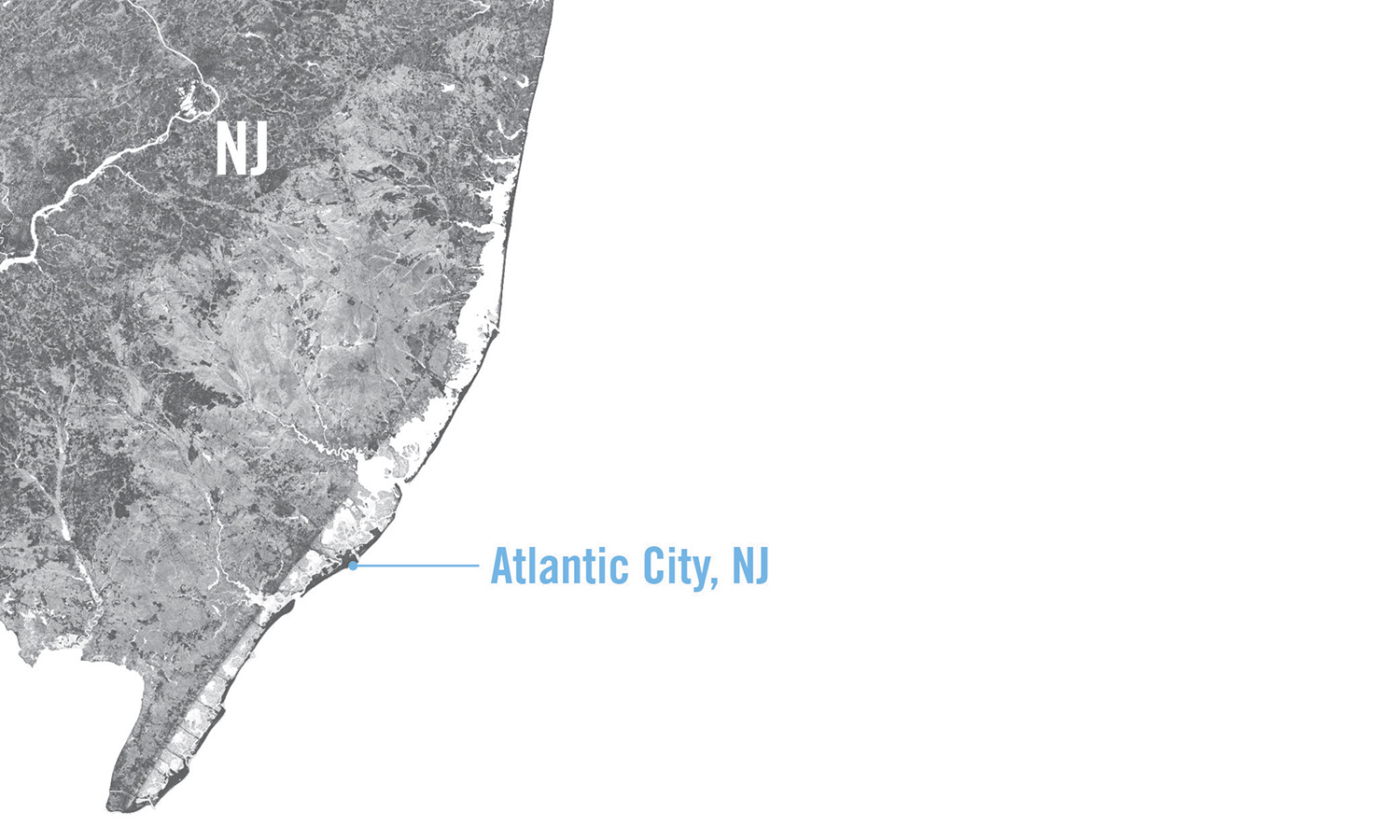
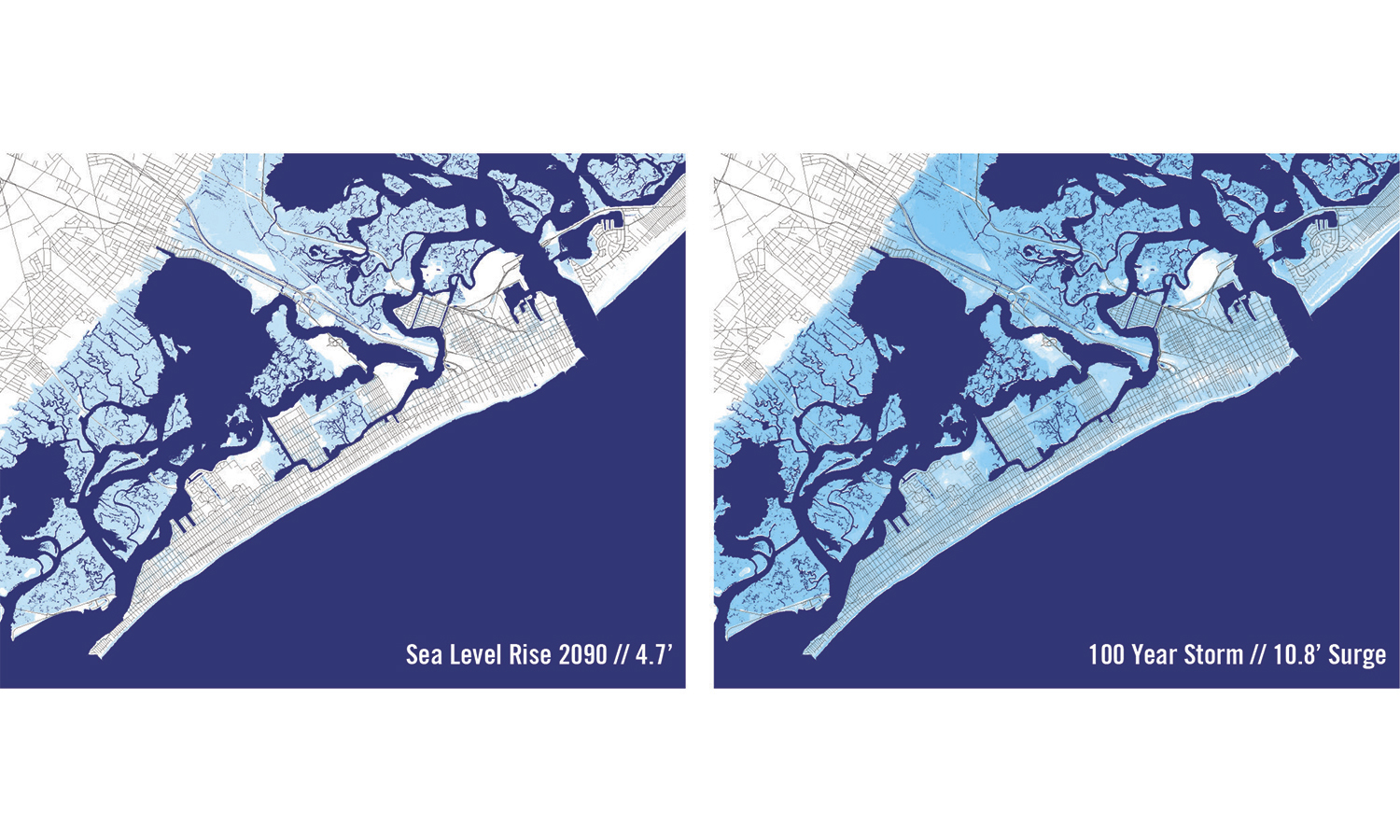
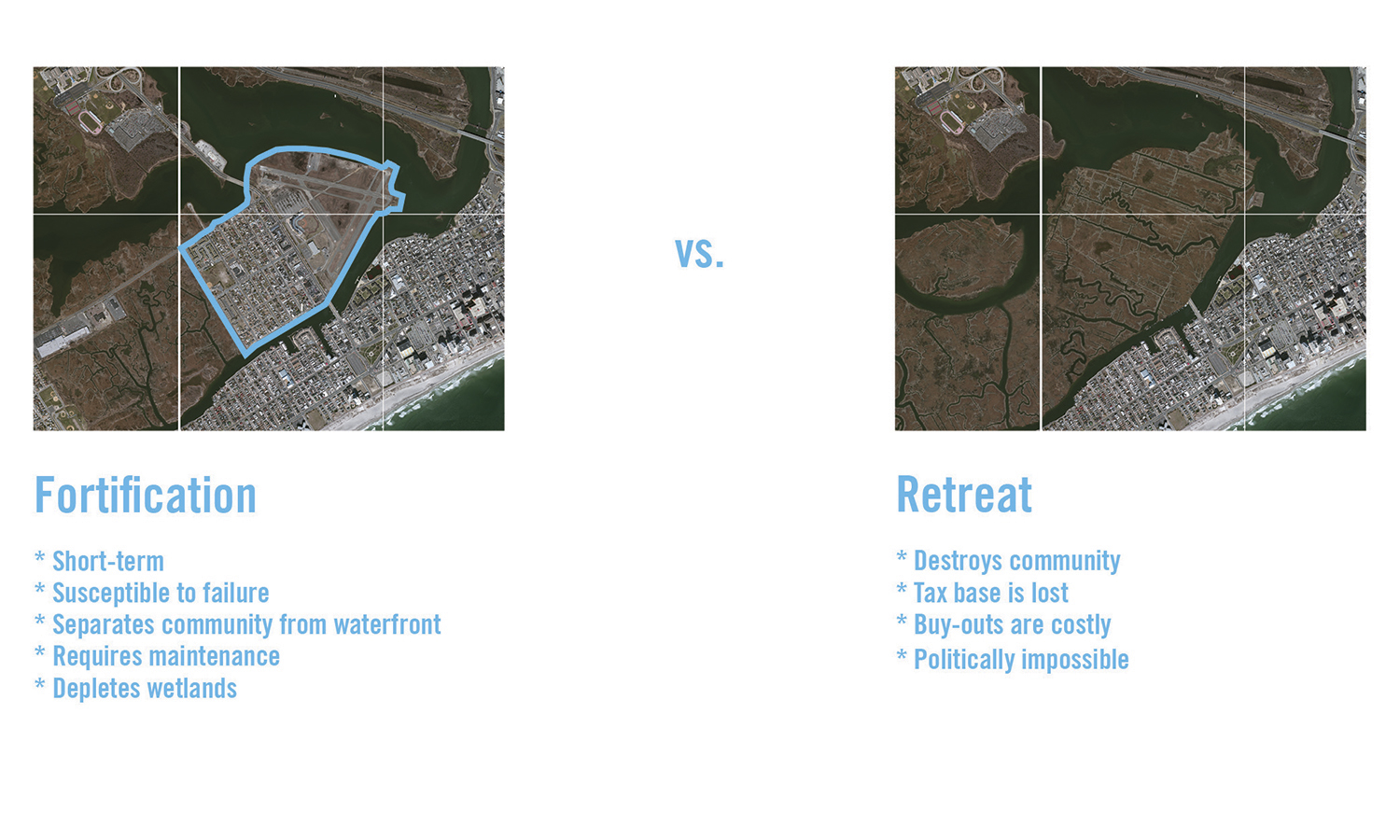
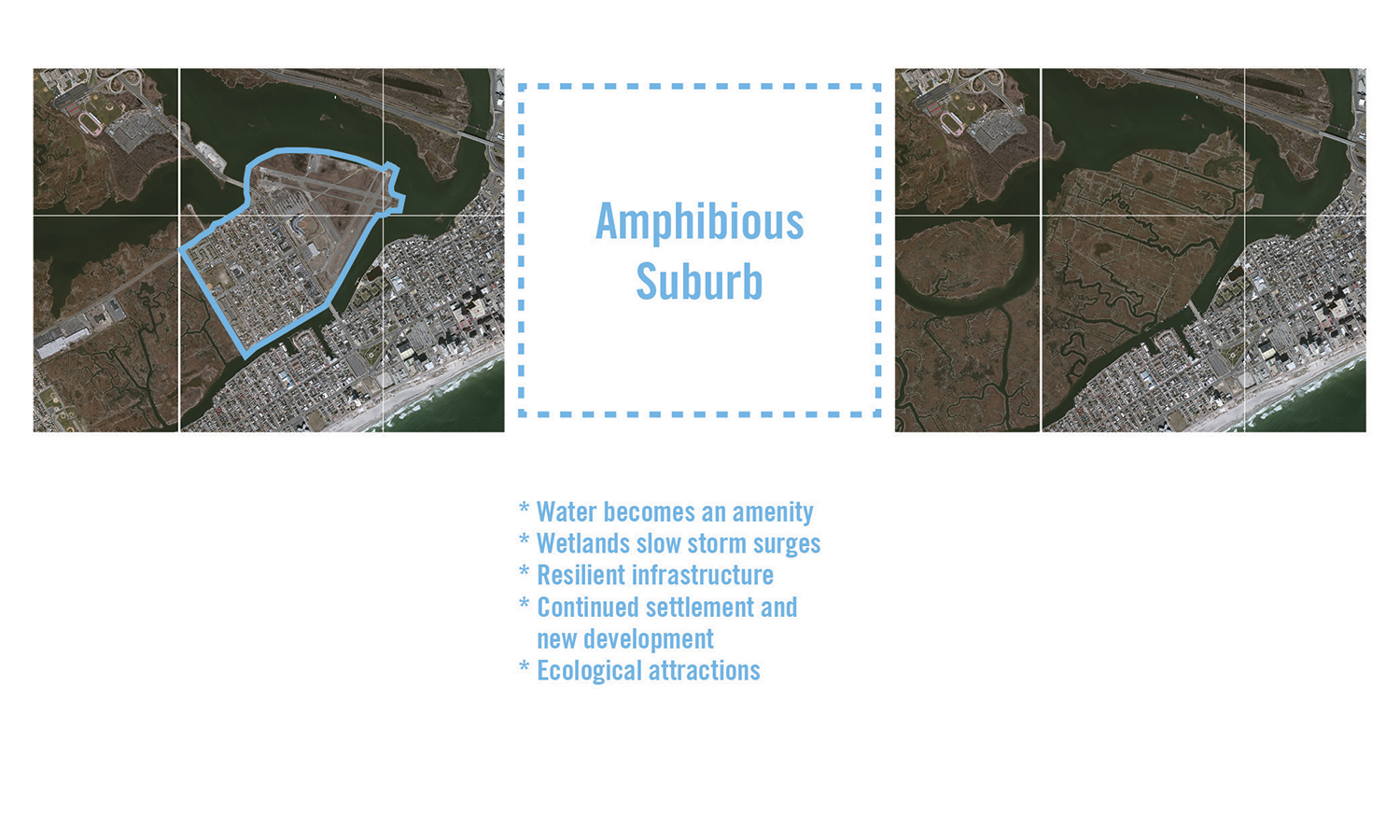
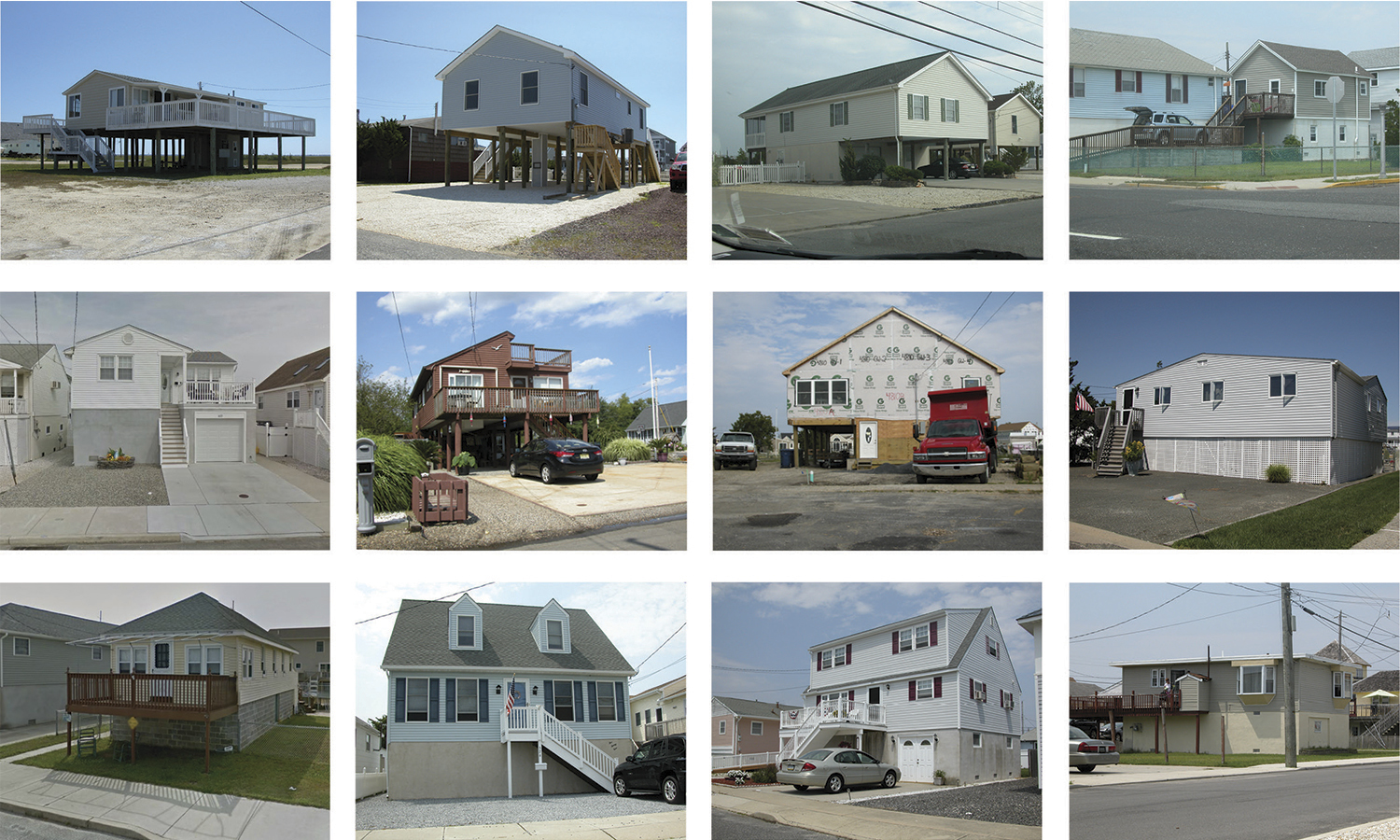
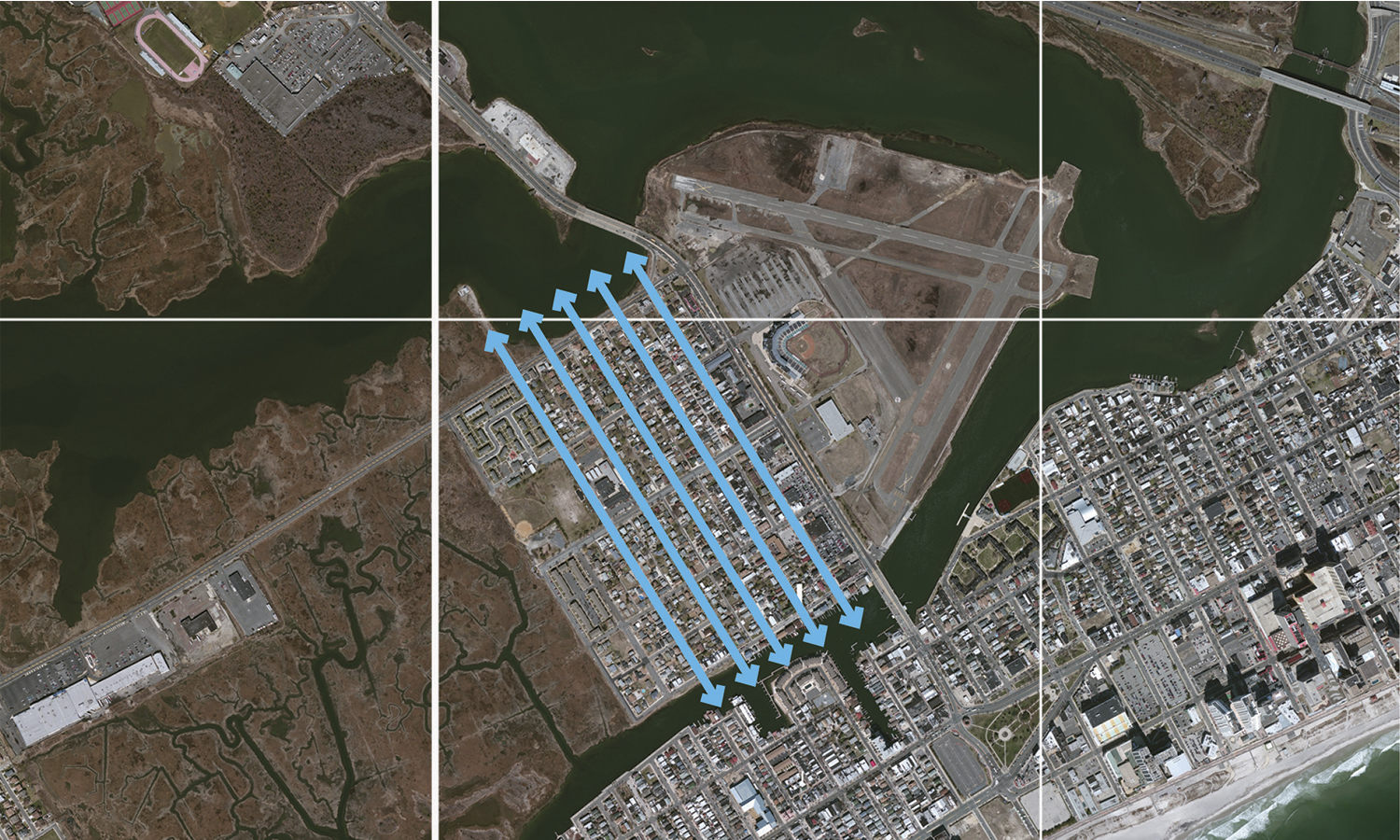
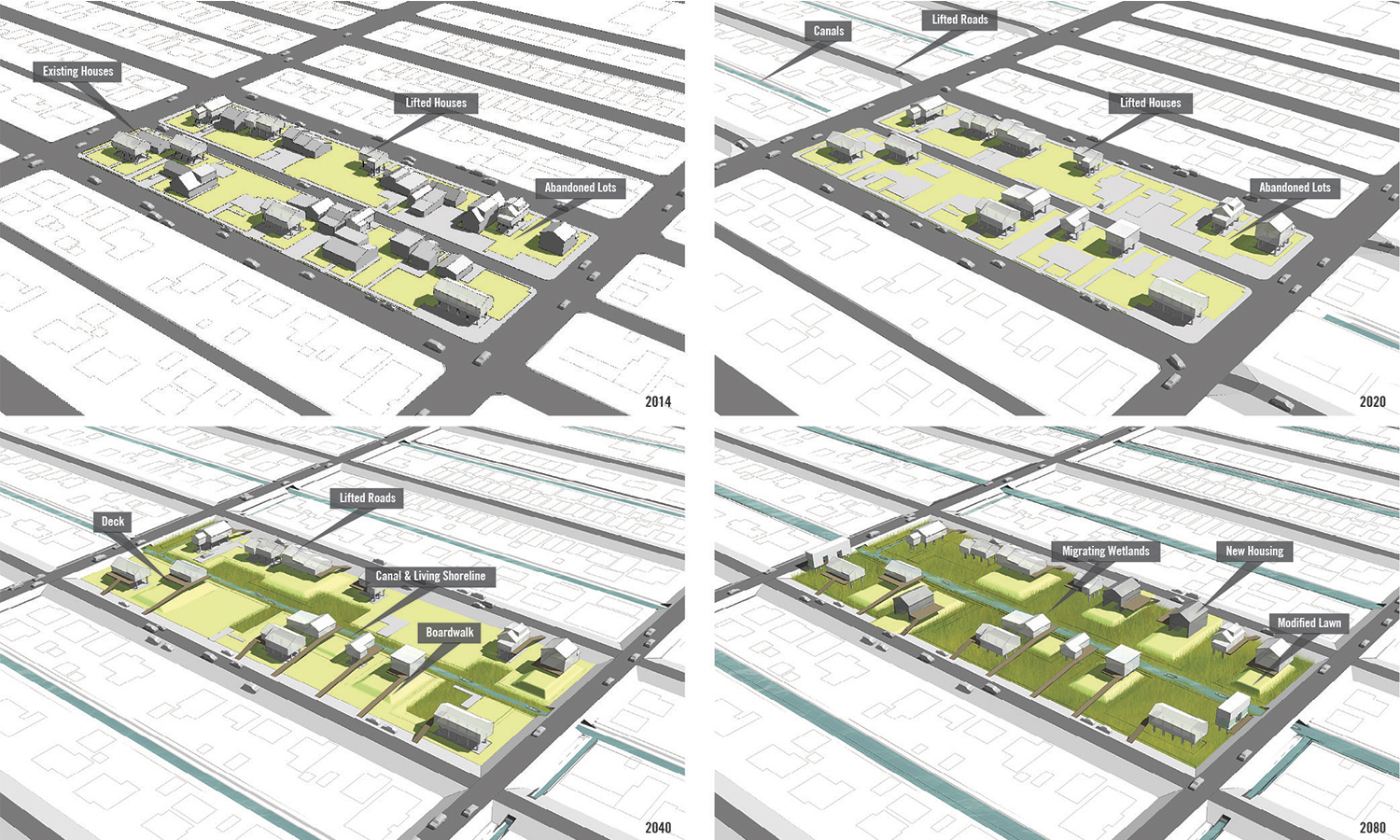
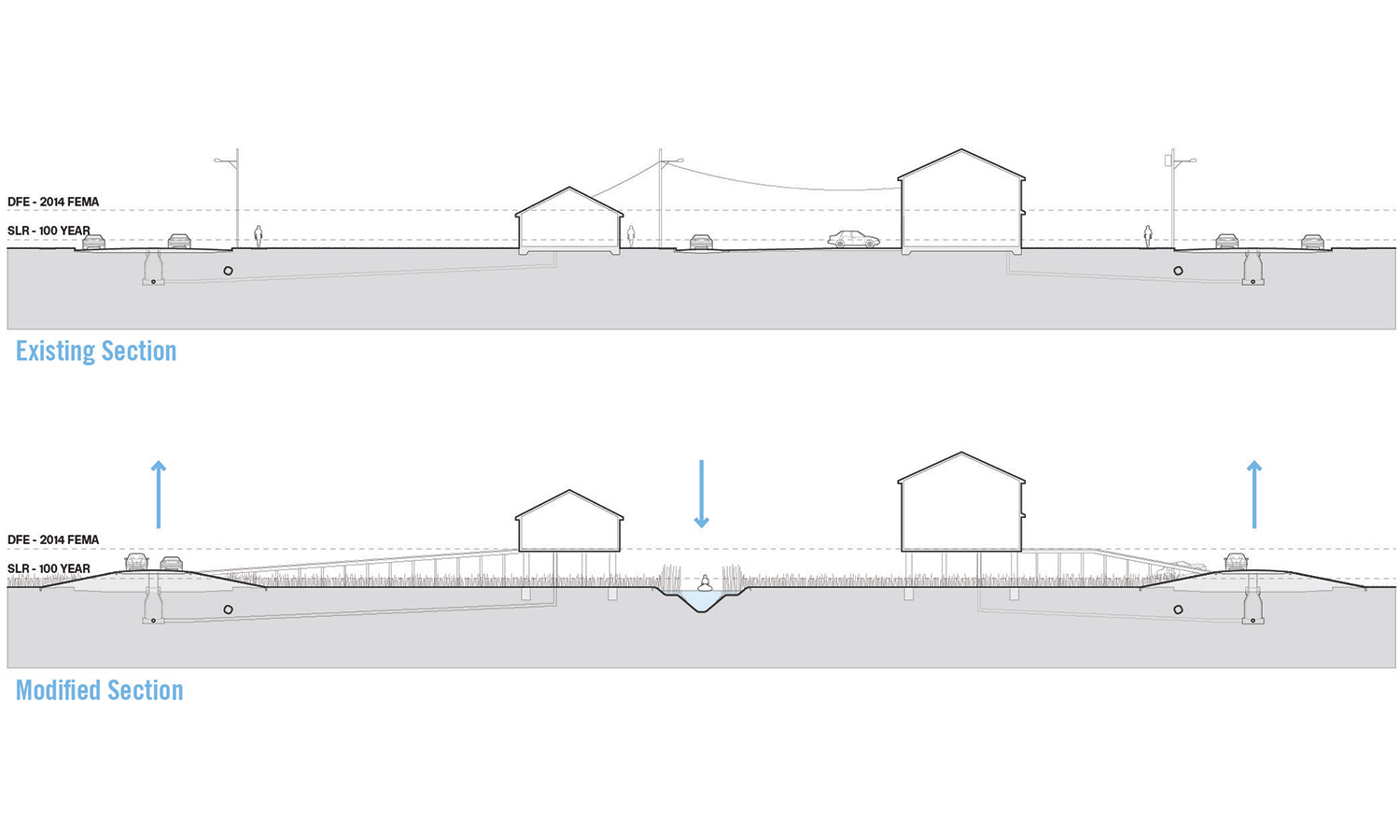
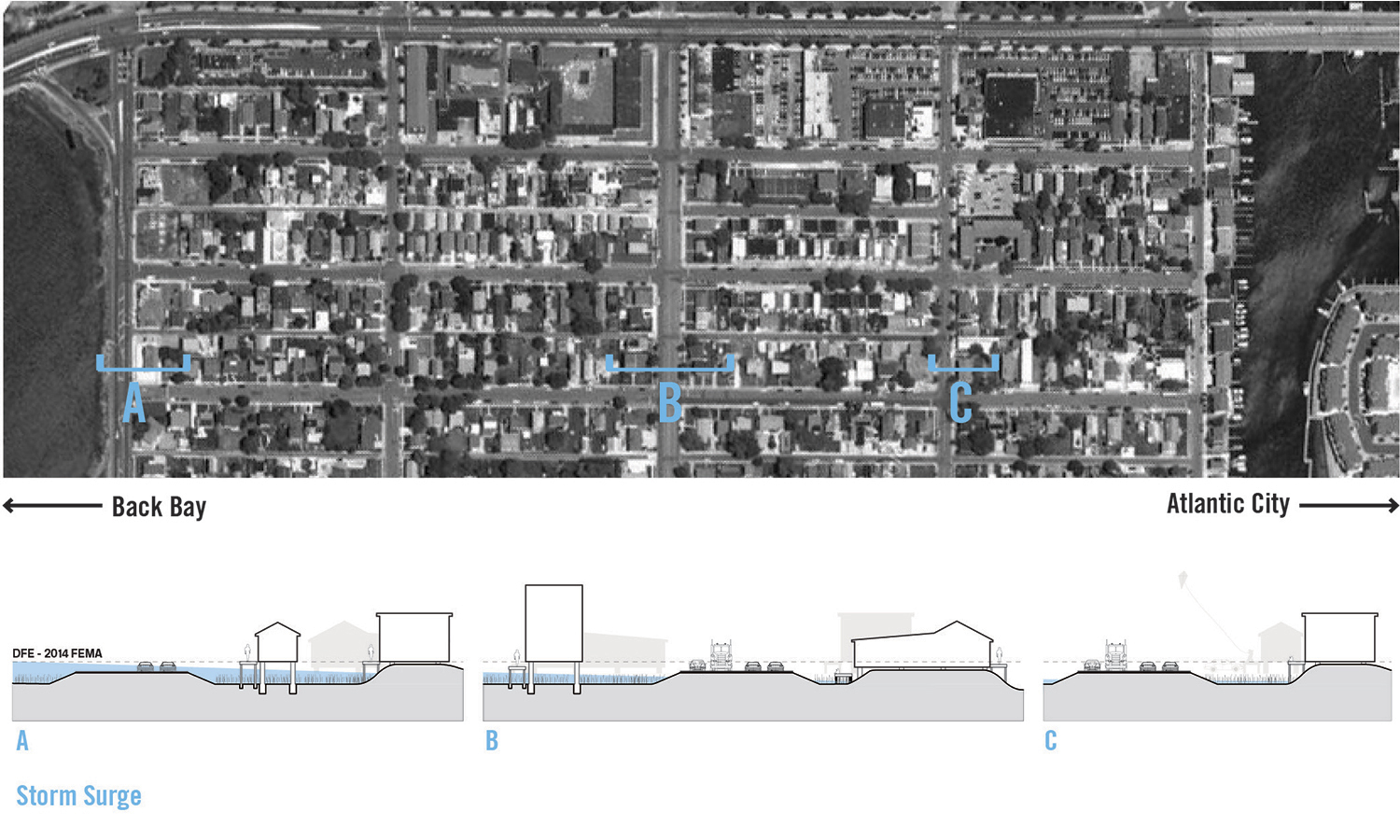
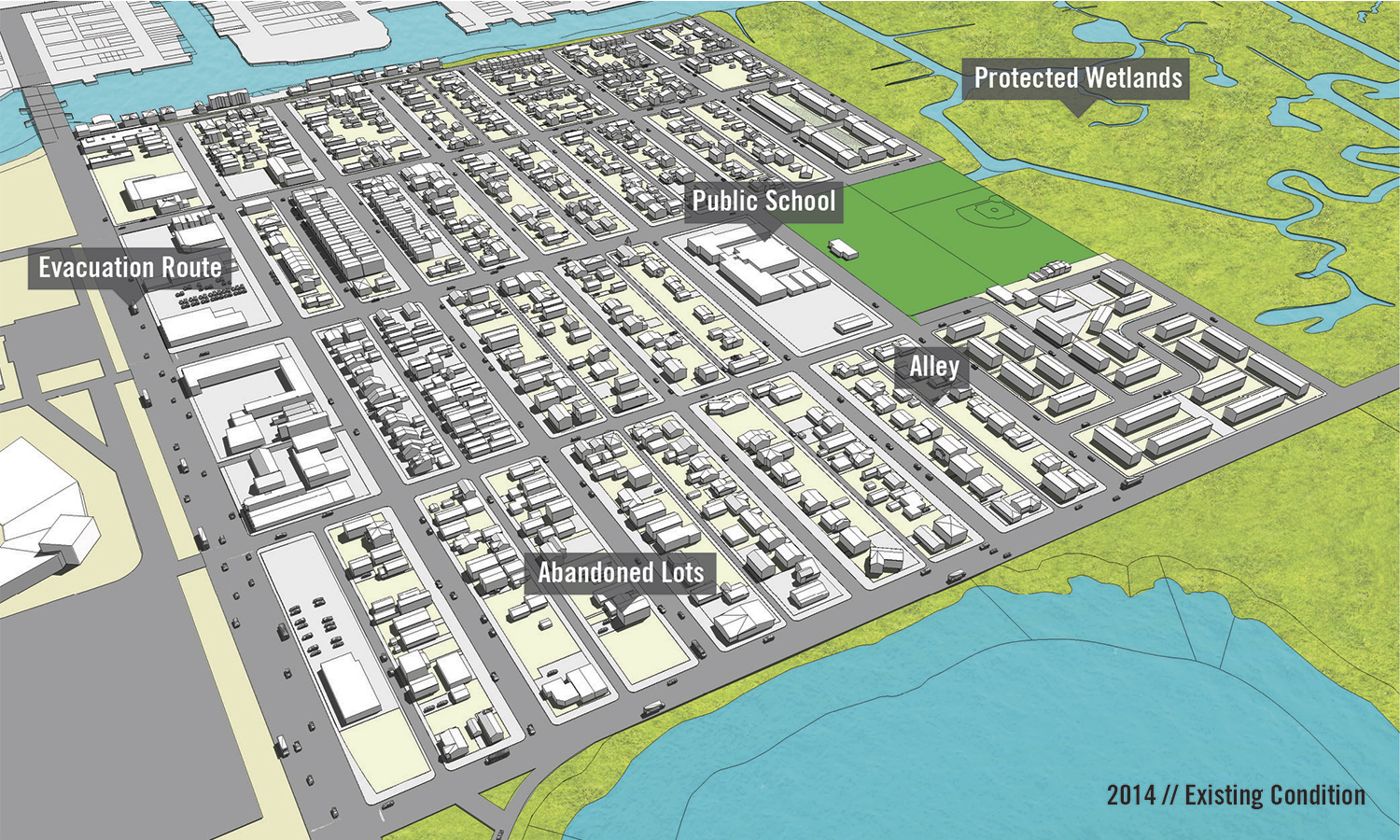
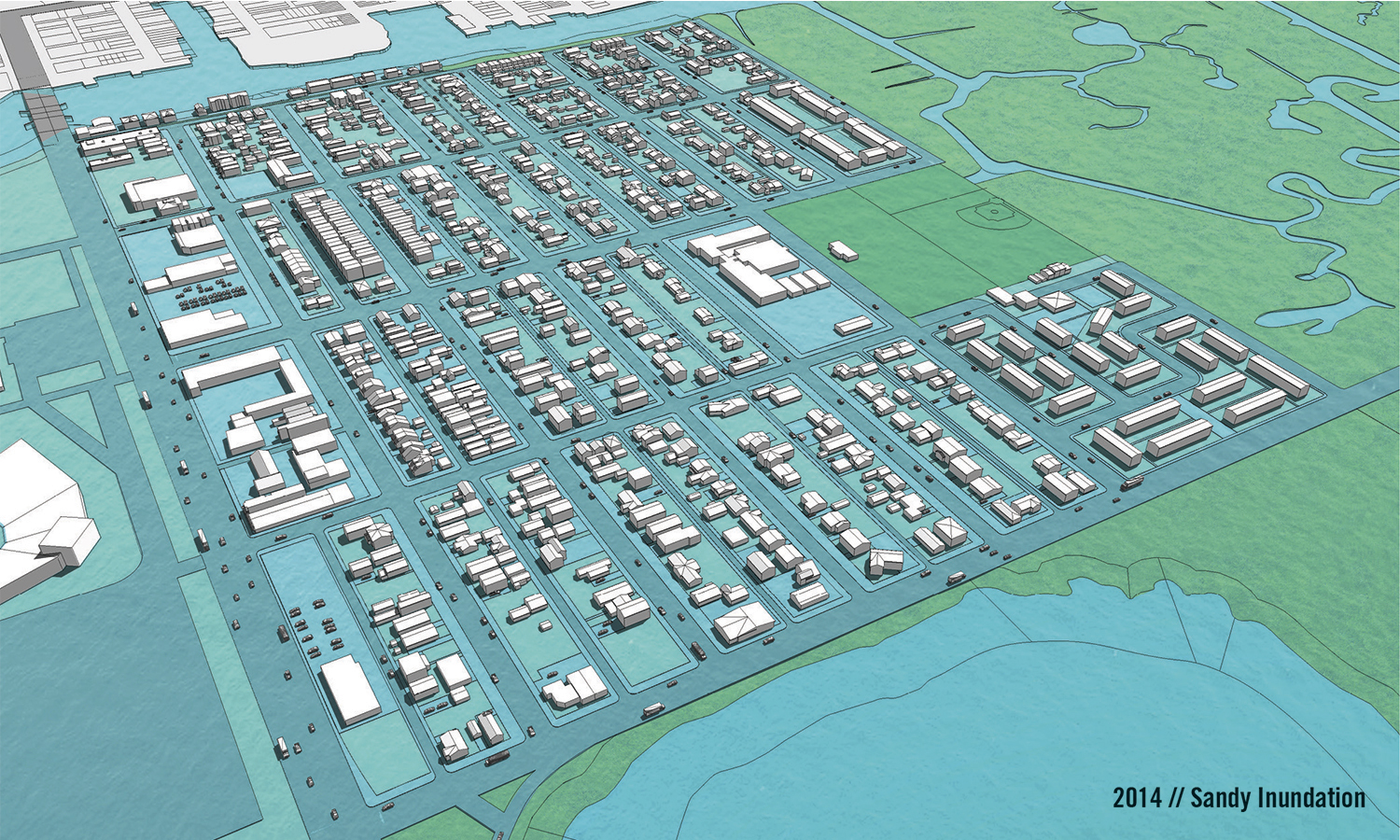
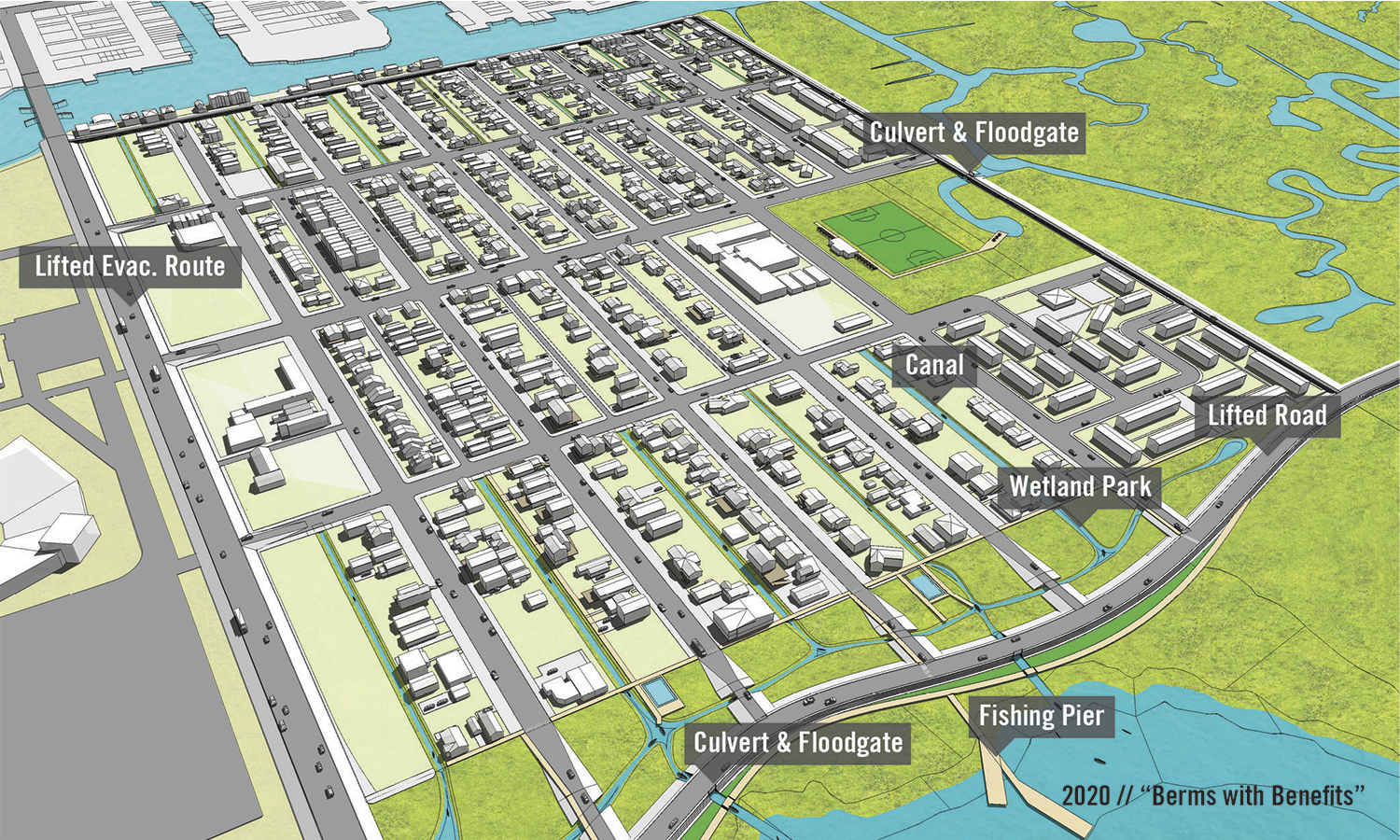

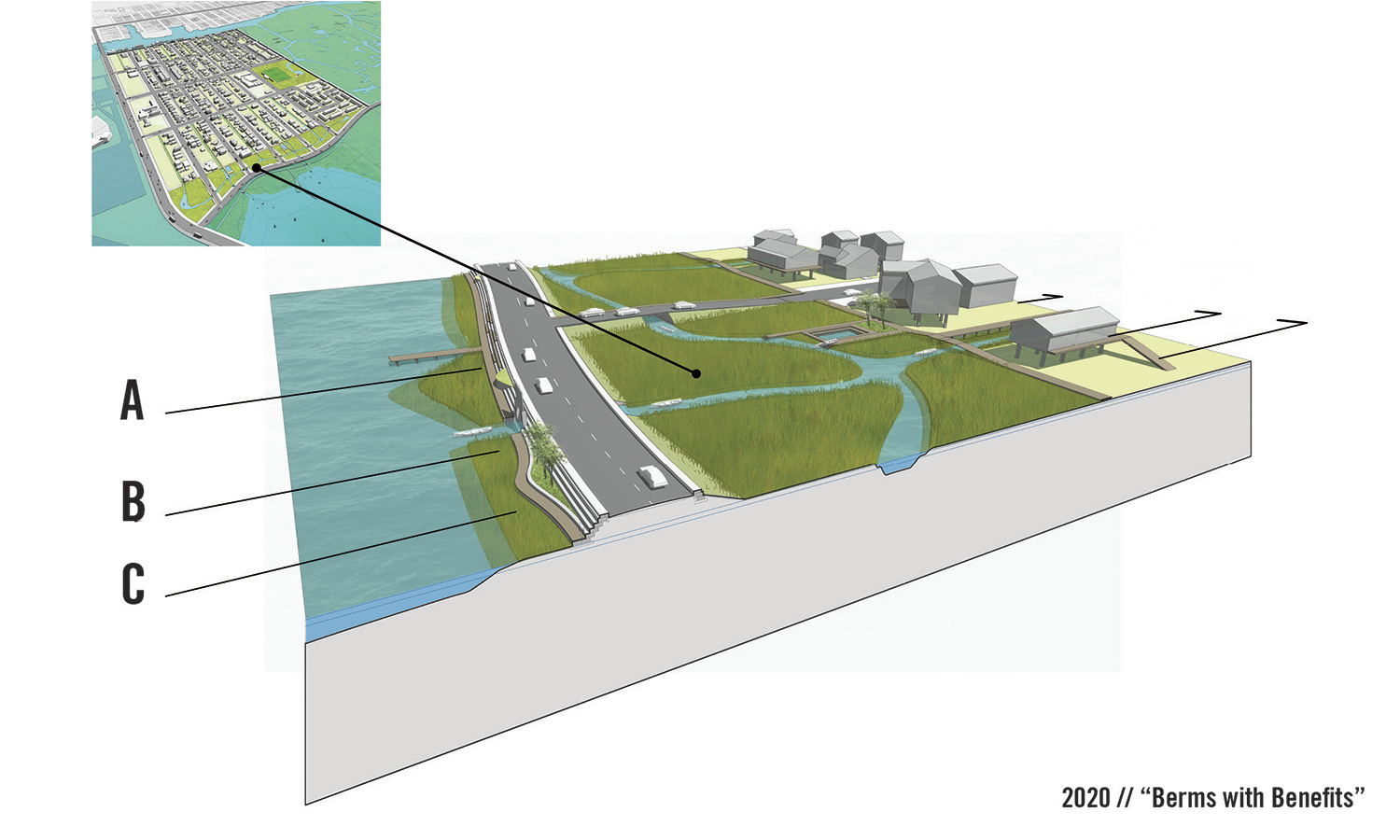
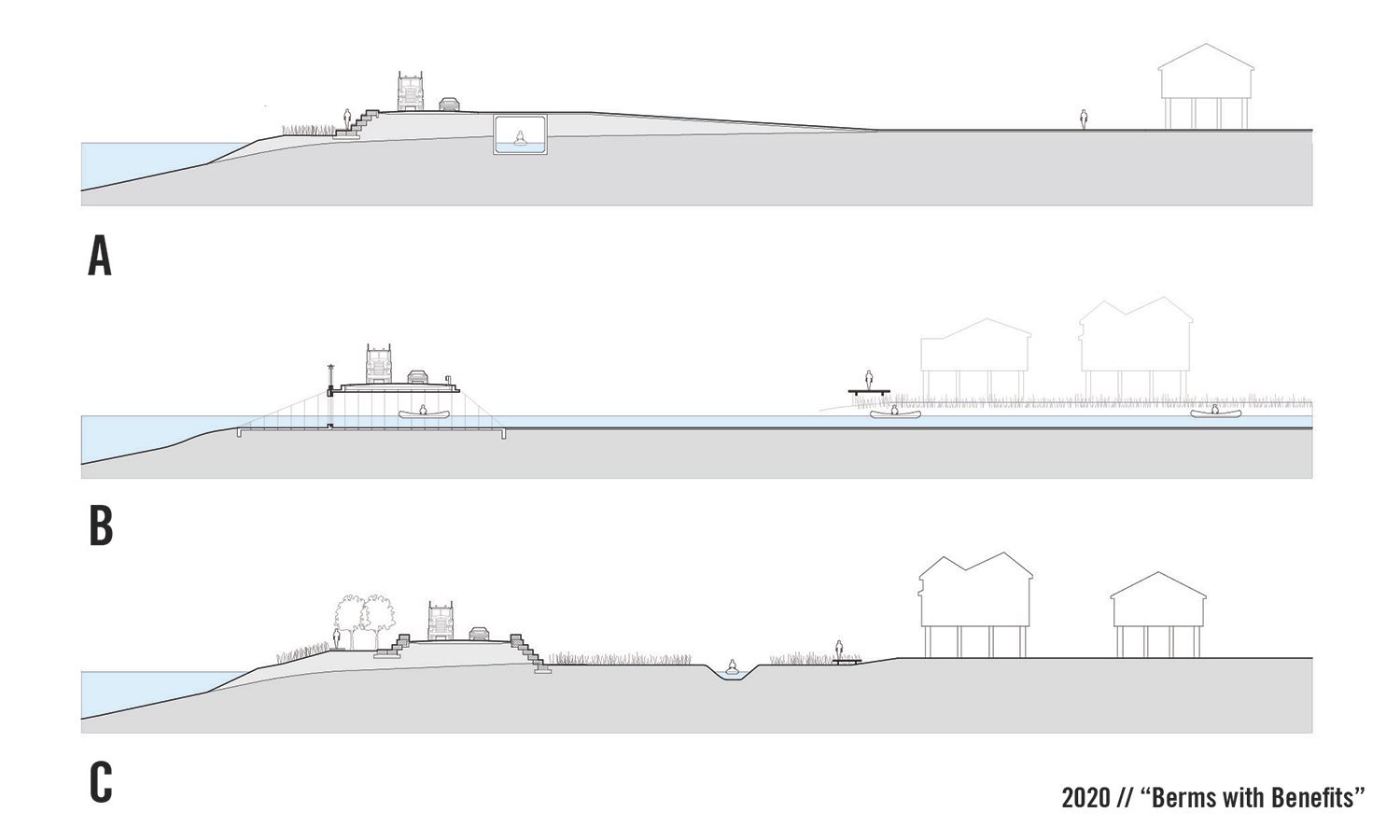
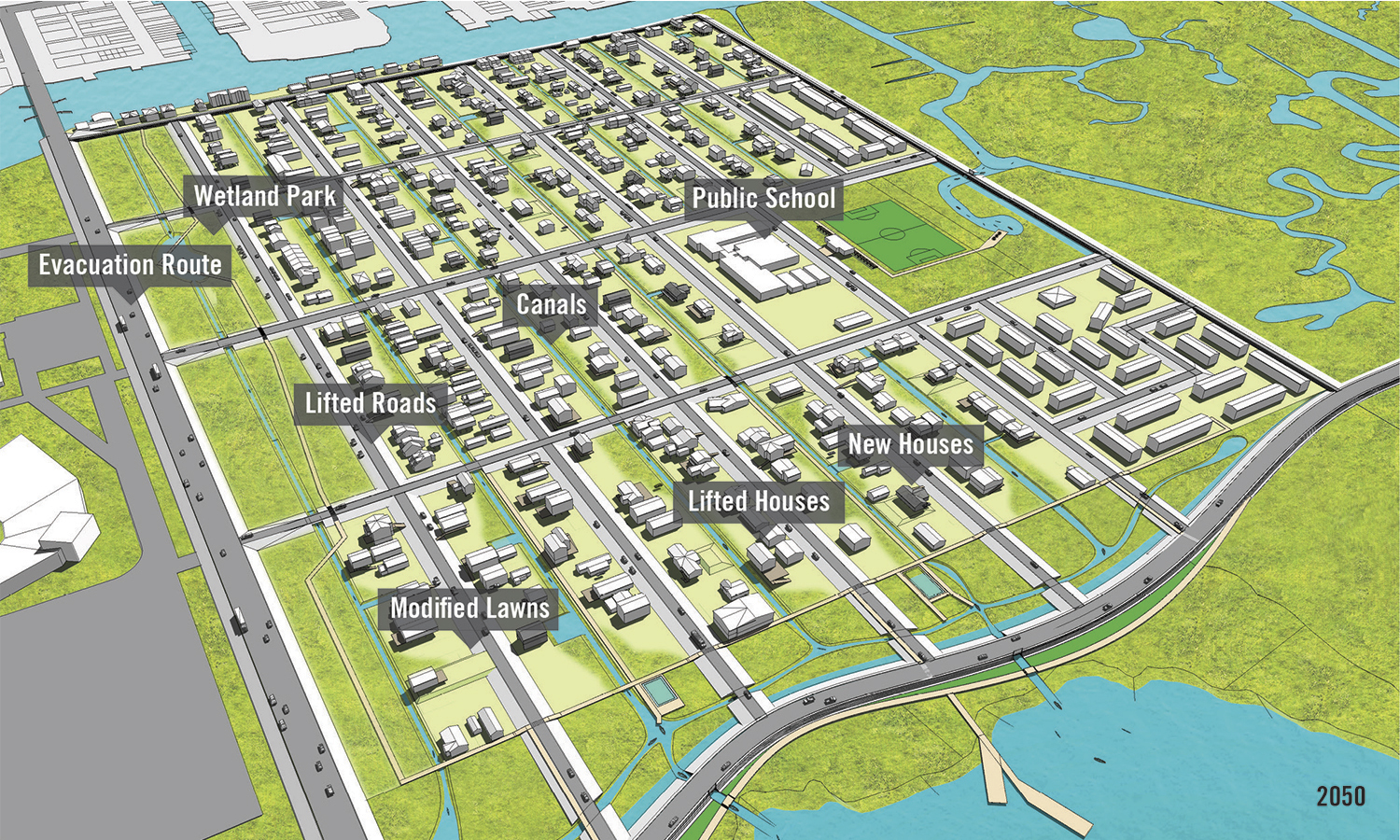
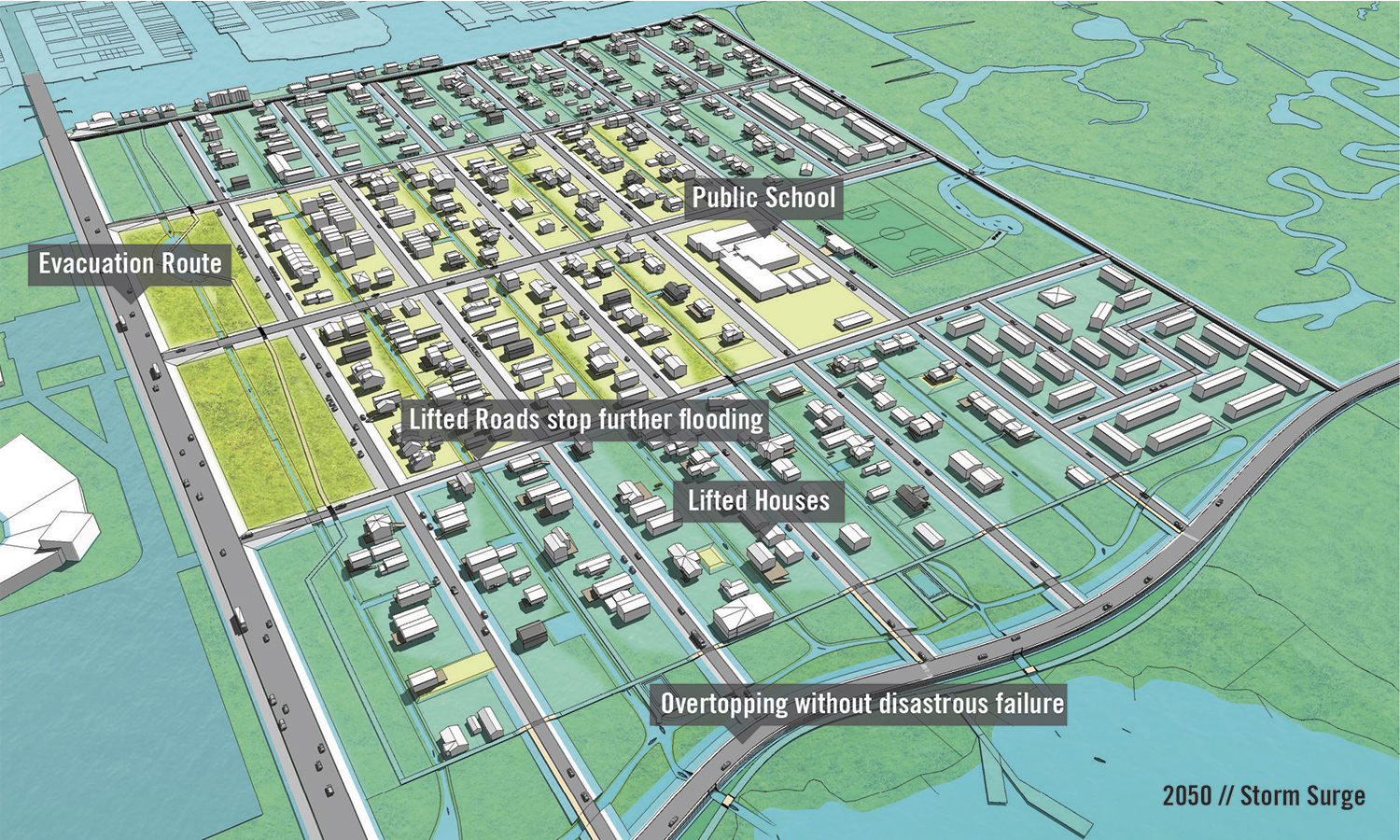
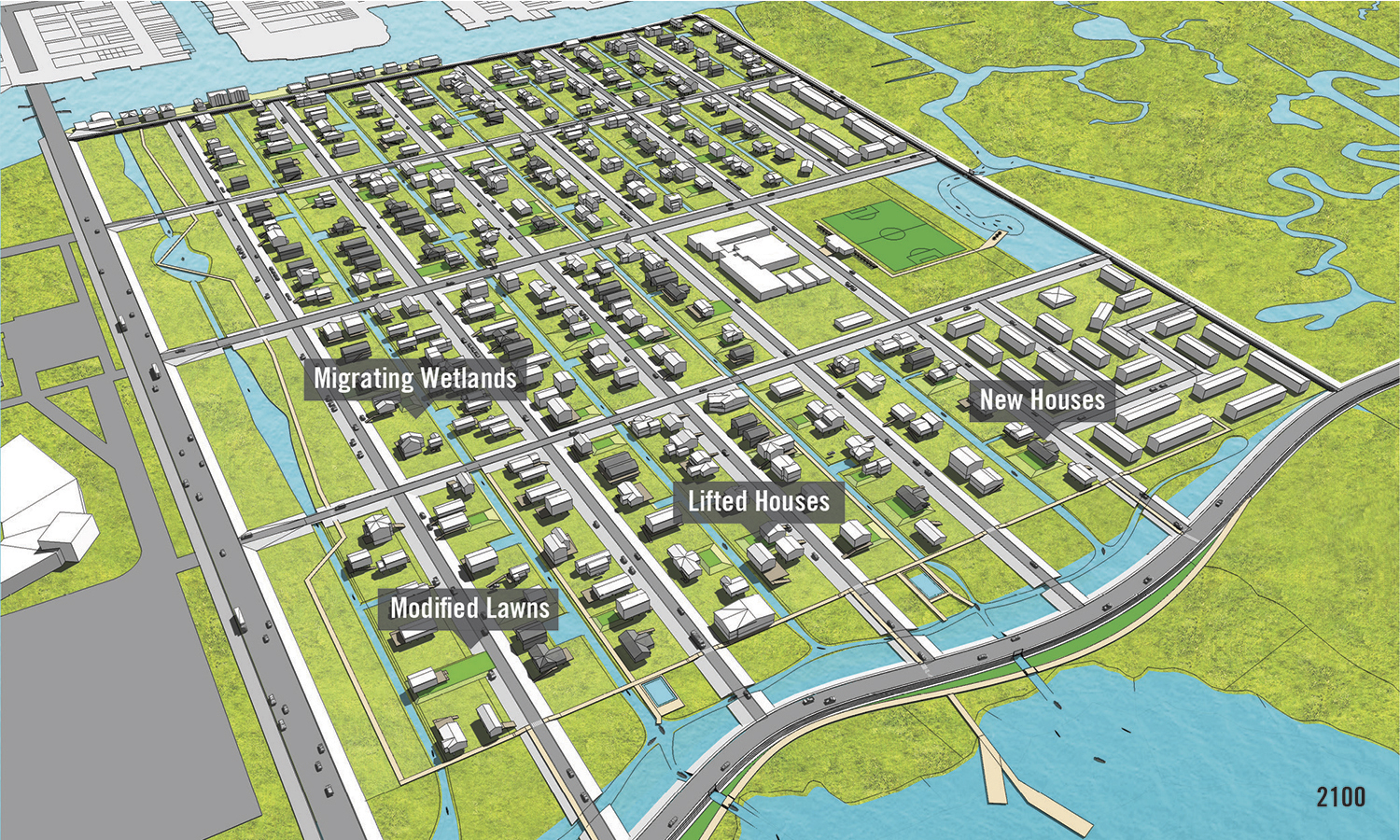
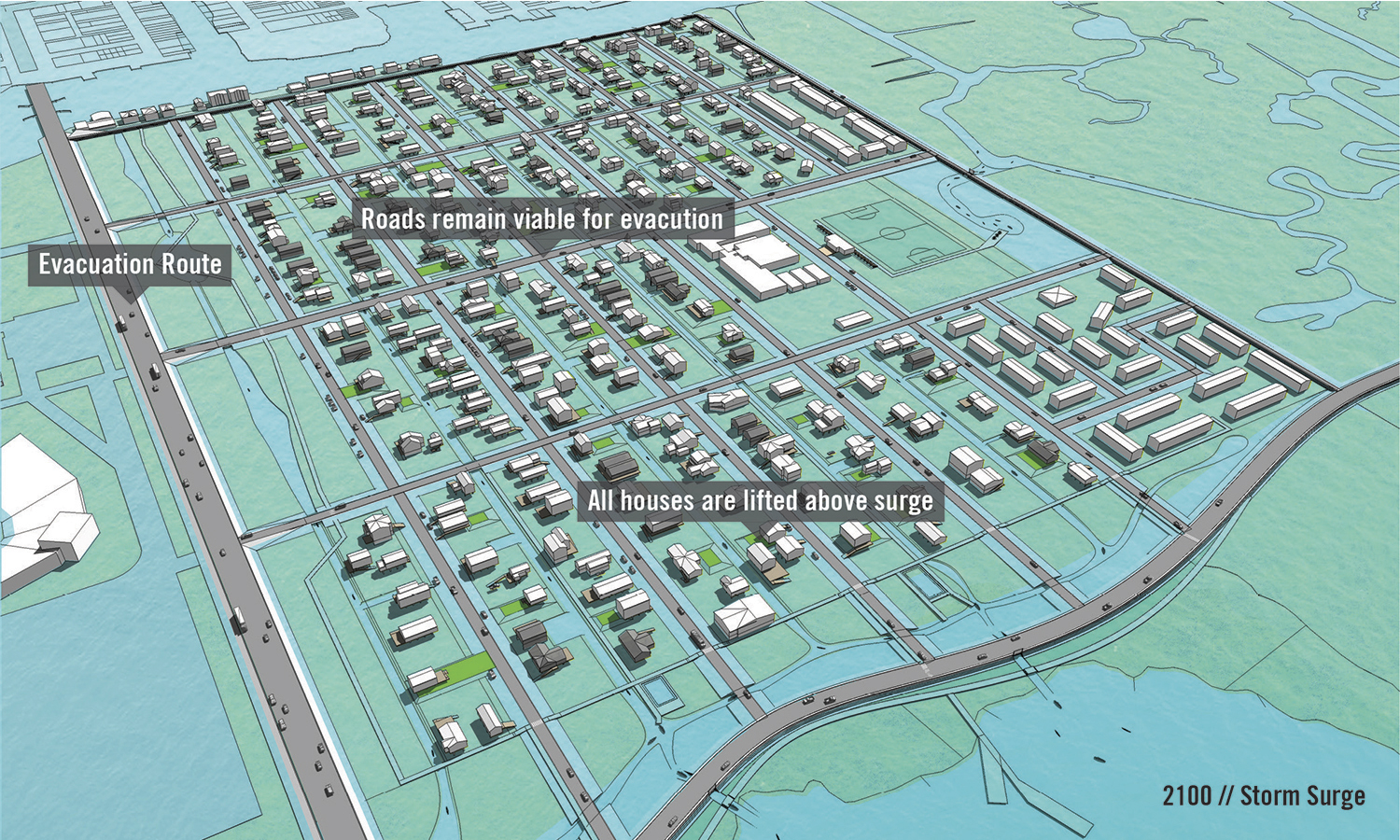
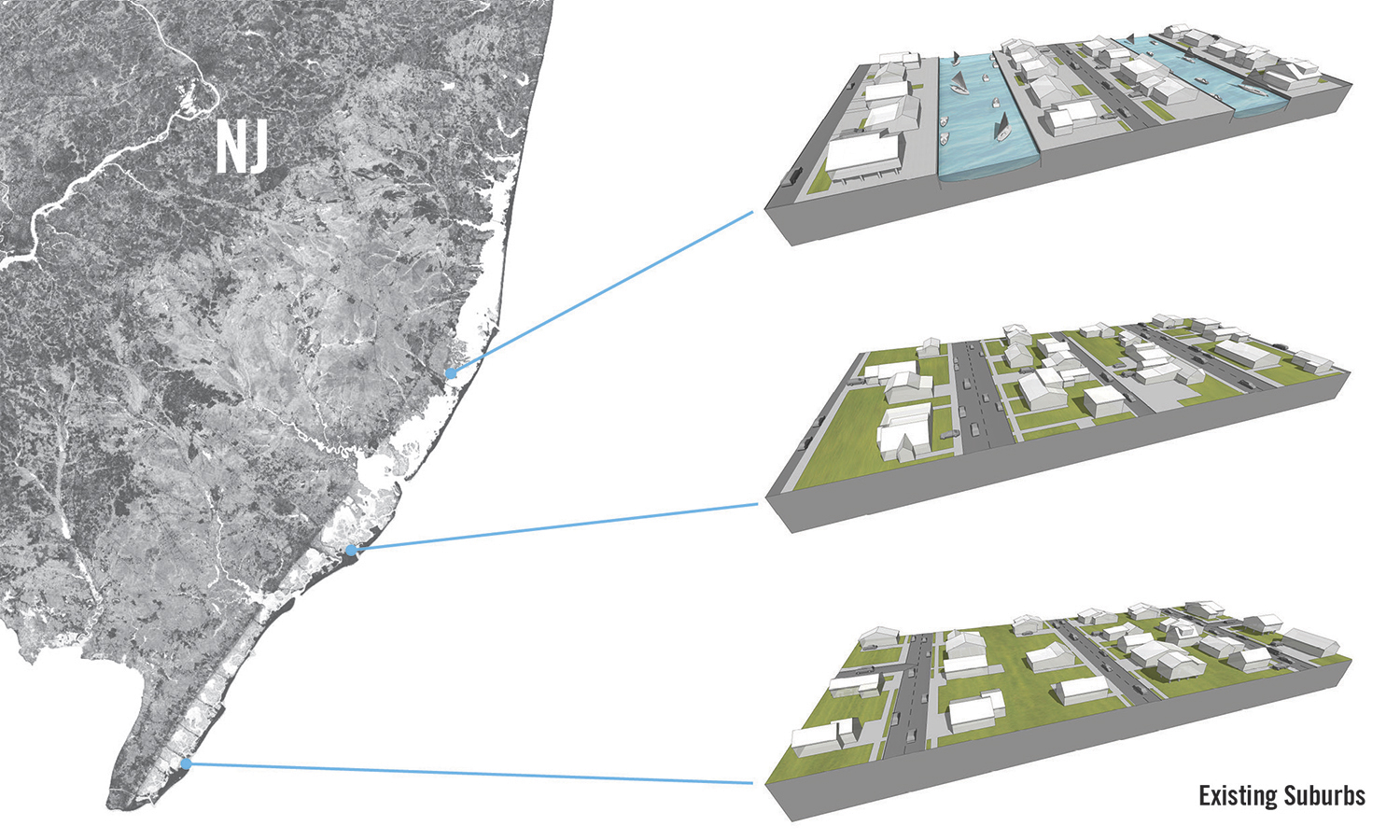
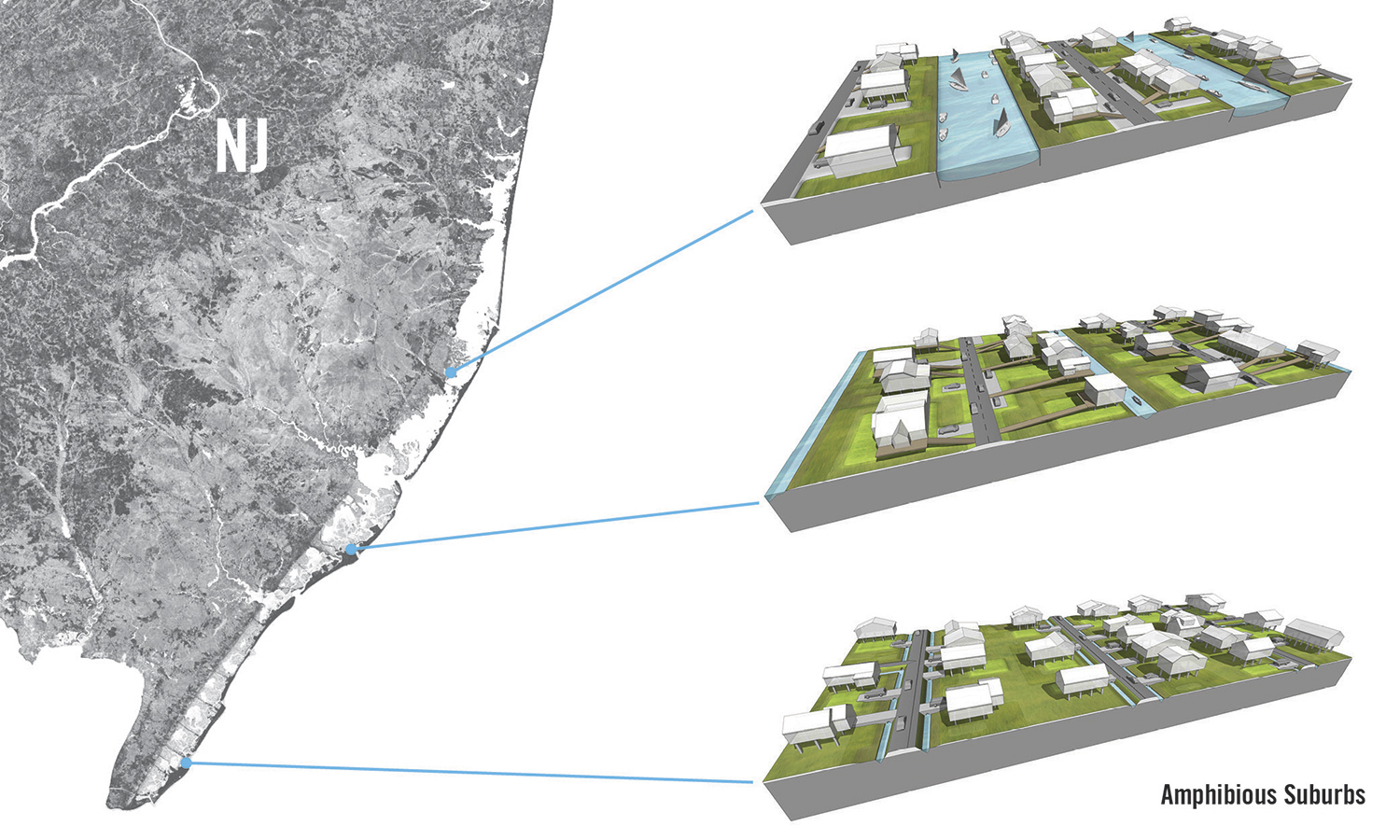
Structures of Coastal Resilience: The Amphibious Suburb
The Rockefeller Foundation
Atlantic City, NJ
2014
The Amphibious Suburb is one of four proposals for Structures of Coastal Resilience, a project supported by The Rockefeller Foundation to develop innovative designs for coastal flood resilience. The Amphibious Suburb presents an alternative to the problematic binary of retreat and fortification faced by coastal communities. Instead, it embraces rising sea levels and calibrates wetland migration to create a livable future in the coastal back bay of Atlantic City. In this project more radically combined natural and protective measures, further enriched by urban fabric, can produce neighborhoods in which residents live with water more fully and beneficially.
In the proposed phased approach, elevated roads function as protective edges – “berms with benefits” – throughout the neighborhood. These barriers are strategically designed to allow water to penetrate them at specific points and provide navigable canals throughout the neighborhood. This controlled permeability, in concert with a reduction of hardscape and the lifting of homes, would allow for its slow transformation into a true amphibious suburb.
For more information, please visit www.structuresofcoastalresilience.org.
Type
Credits
Client: The Rockefeller Foundation
Project team: The Princeton University School of Architecture team is Paul Lewis with Anna Knoell and Kevin Hayes.
